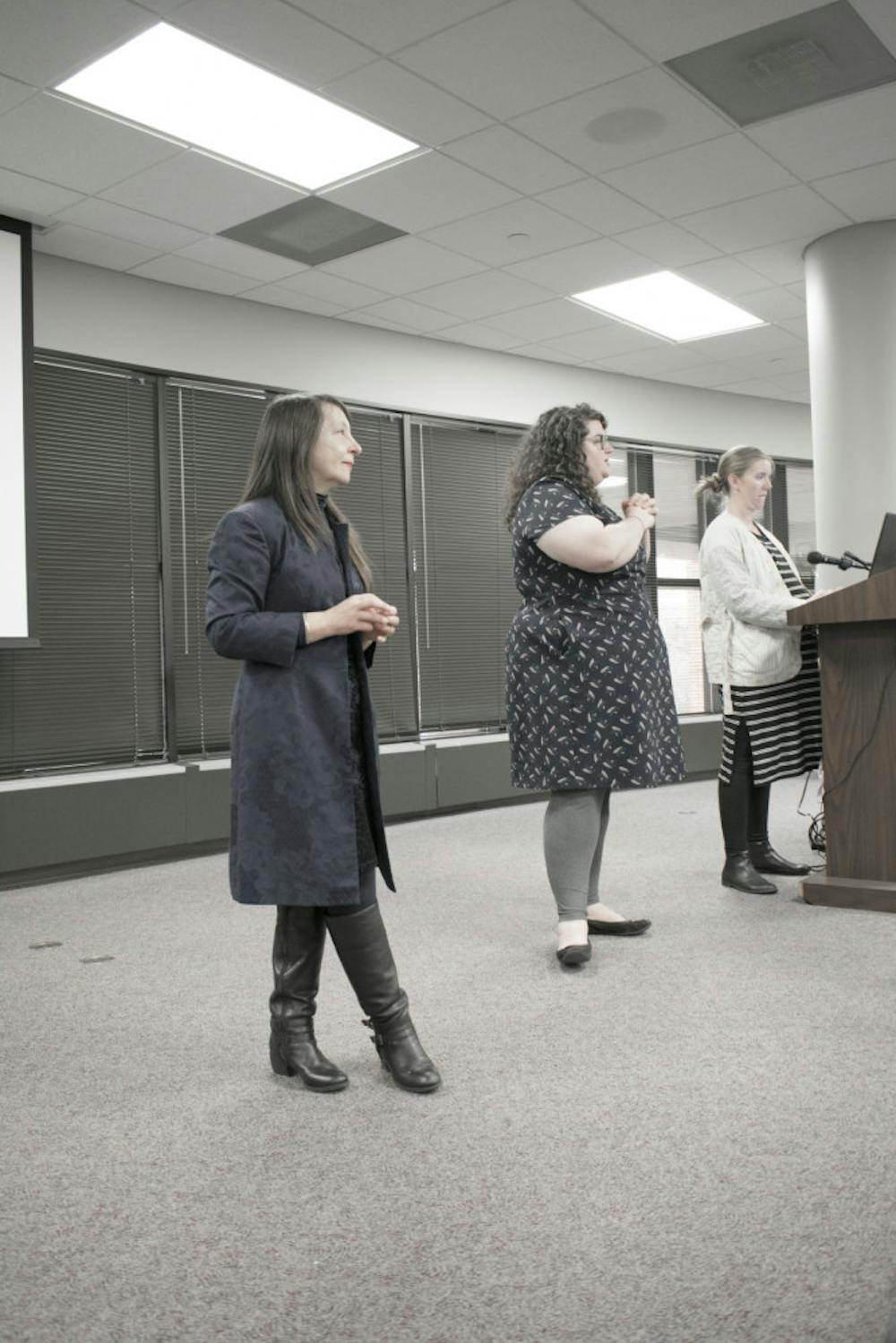The University of Memphis Tiger Pantry closed out the Food for Thought speaker series with a presentation on poverty and how food insecurity could affect students Nov. 14 at the Ned McWherter Library.
Dr. Elena Delavega, a professor of social work at the UofM, has conducted several studies on food in relation to poverty.
Delavega describes the way food insecurity is not having enough money to meet basic needs such as food, but it is more complex.
“Food insecurity refers to the fact that one of the things you cut when you are in a bad economic situation is food,” Delavega said.
Delavega’s research has found that food insecurity affects 69% of UofM students. This obstacle can negatively impact their pursuit of education.
“What we found in the research is that college students experiencing food insecurity find it more difficult to complete their degree even when their grades are better,” Delavega said.
Delavega said our societal interactions with people below the poverty line often lack understanding because of the way the culture of poverty is viewed.
“There are three ways of looking at poverty: one of them is that there are internal causes,” Delavega said. “The second one is there are external structural, systemic social causes, and then third there is luck.”
Delavega also said the poor are often seen as incompetent and are blamed for their own poverty. The structural factors of poverty are, therefore, not taken into consideration.
The culture of poverty intervention leaks into professional settings, as well. Delavega said blaming the impoverished limits their access to services like health care.
“There’s a lot of research showing that people in poverty are treated worse,” Delavega said. “When people feel that they’re treated worse, they feel judged, so they actually seek less services.”
Delavega said, blaming the poor for being poor is systemic violence that ignores the structural conditions which contribute to poverty.
“The culture of poverty is the idea that the poor are poor because of their behaviors,” Delavega said. “It’s nothing about the system, so don’t look at the wages.”
Alison Brown, Coordinator of Student Outreach and Support, said the food insecurity is an issue that could greatly impact students.
“Nationwide, we know that at four-year universities, 41% of students experience food insecurity,” Brown said.
Brown combats food insecurity on campus through Tiger Pantry, a resource that provides food and basic household items to students.
“If they don’t need food, they can educate their friends and family to make sure that everyone in the Tiger family is accessing the food they need,” Brown said.
Brown said resources such as the Tiger Pantry are not enough to make a significant change.
“Spreading knowledge about Tiger Pantry is great, but we need systemic change,” Brown said. “We need student voices to help us advocate to administration and elected officials to make sure that college students can access systemic support like SNAP and WIC.”
Students in attendance found the presentation to be eye-opening.
Denise Farrell, a graduate student in educational psychology and research, said she never considered that the average college student would suffer from food insecurity.
“I never thought that it would be an issue for college students because, traditionally, college students were coming from a certain class or a certain background,” Farrell said. “Now, with the different opportunities that students have, they’re coming from all different backgrounds.”
Cedric Turner, an English major, said he agreed with Delavega that professionals, including teachers, show little understanding of other people’s circumstances.
“In the world of education, we don’t take into effect people’s well-being, their lifestyles, or their background when it comes to the classroom,” Turner said. “The concern is are you learning and improving effectively, and if you’re not, then your hand won’t be held.”
Dr. Elena Delevega, Professor of social work at UofM, gave a presentation on poverty and food insecurity’s effect on students in the Ned McWerter Library on Nov. 14.
Dr. Elena Delevega, Professor of social work at UofM, gave a presentation on poverty and food insecurity's effect on students in the Ned McWerter Library on Nov. 14.






